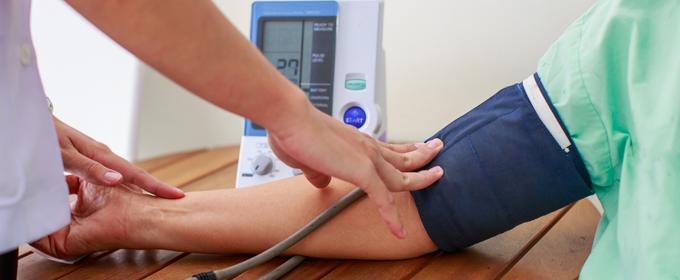Excess body weight is the sixth major factor contributing to the overall burden of disease worldwide. The body mass index (BMI) has been considered as a useful index for assessing obesity and is known to be causally associated with hypertension, which can be reduced by
weight loss.
Obesity is a term used to describe people with a body mass index (BMI) above 30, and it is a major risk factor for high blood pressure. Based on population studies, there is a risk of at least two-thirds of the prevalence of hypertension that can be directly linked to obesity.
Obesity is generally characterized by an increase in number of fat cells in the body or an increase in their size. It can be caused by:
The amount and types of food you eat.
The amount of physical activity you do.
Your genetics.
Your family history.
The amount and quality of sleep you get.
- Wearing the wrong bra or an unsupported one
- Female hormone deficiency
- Multiple pregnancies
- Breastfeeding
When you have excess body weight, your heart has to work even much harder to pump blood throughout your body and all this extra effort puts a lot of strain on your arteries. This extra strain on the artery causes the blood pressure to rise. An ideal blood pressure of 120/80mm Hg is considered to be normal. According to the Centres for Disease control and Prevention (CDC), blood pressure can lead to the following complications:
- heart disease
- stroke
- kidney disease
- brain and cognitive problems
- higher risk of dementia
Effect Of Obesity and Blood Pressure on Kidney
Obesity causes strain on your kidneys, which ultimately puts more strain on your heart. When you have high blood pressure and you are overweight this adds to the pressure to the tiny blood vessels in your kidney and damages it. When the walls of the vessels thicken this limits the blood flow, making it harder for your kidneys to filter your blood to remove waste and
fluids. When your kidney is unable to remove excess fluid, your heart has to work even harder. Thus this vicious cycle continues further increasing the blood pressure.
Mode of treatment for Blood Pressure patients with Obesity
It’s very possible to reverse or manage blood pressure by reducing weight with the help of dietary modification and lifestyle changes.
Dietary Modification:
- Avoiding high caloric food such as junk food, deep-fried food, sweets, desserts, ice-creams, and pastries.
- Eating too much salt can also raise your blood pressure because salt attracts water. The more salt you have in your blood, the more fluid your blood vessels will retain, thus increasing the pressure in your blood vessels. Avoiding foods high in Sodium or salty foods like papads, pickles, chips, processed foods, chips, French fries, restaurant foods, canned foods, etc. The American Heart Association recommends that adults should consume not more than 1500 mg of sodium daily.
- Reading the nutritional label of all packaged foods to see for the sodium content/added salt/preservatives/monosodium.
- Eating a calorie deficit diet which ranges from 1100 -1200 calories is low in fat and moderate protein and a moderate amount of complex carbohydrates.
- Including 2 servings of fresh fruits and 4-5 servings of vegetables on a daily basis.
- Avoiding intake of alcohol.
Lifestyle Changes:
- Being active the whole day and including 40mins brisk walk every day. Doing a workout often brings about the secretion of endorphins (happiness hormone) that helps relieve stress and prevents hypertension.
- Getting a good night’s sleep.
- Doing meditation and deep breathing to reduce stress hormones which will ultimately help in reducing high blood pressure.
- Taking medication for blood pressure as prescribed by the doctor regularly and checking your blood pressure regularly.


